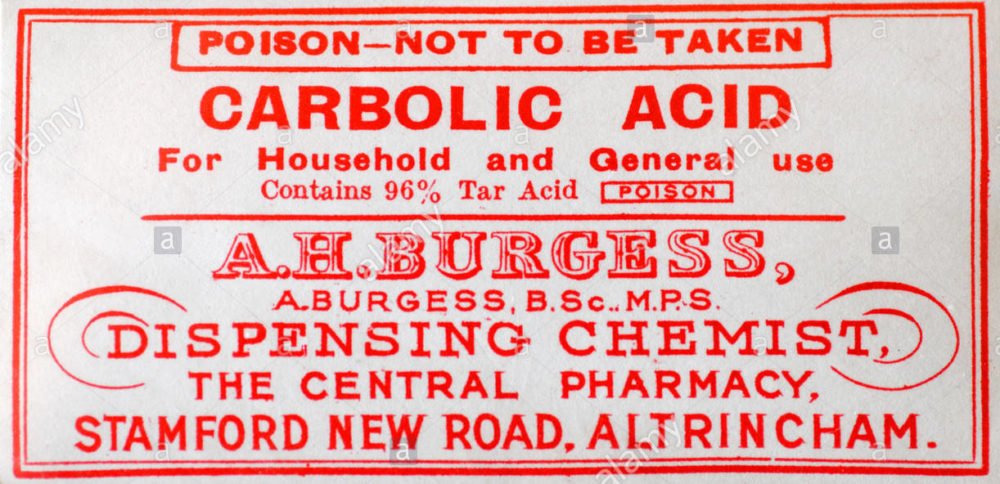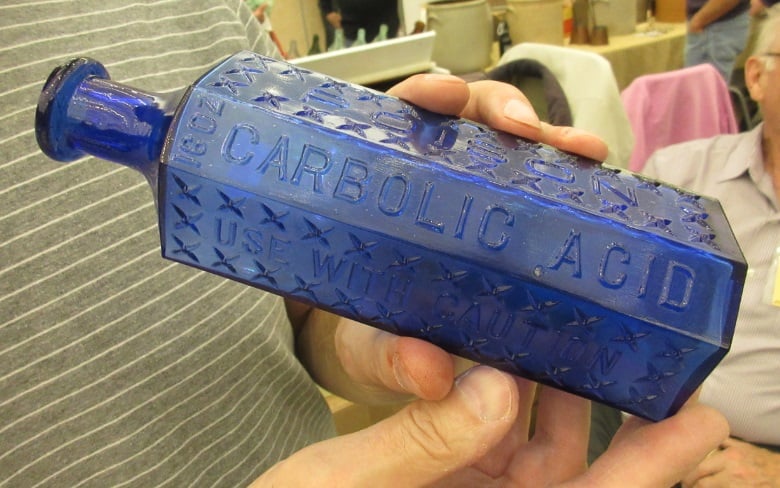
On the 18th August 1880 the nuns of the Sisters of Charity, from the Winckley Square Convent, arranged that a girl boarder from their school, who was suffering from scarlet fever, be taken to a lodging house, at 177, Fylde Road, whilst recovering.
That afternoon two nuns and the sickly girl arrived at the home of Mrs Margaret Melling in a cab. The girl was immediately taken upstairs and made comfortable by the nuns who had brought bedding, medicine and provisions.
Also lodging with the widow Melling were Sgt William Derham, of the Lancashire Constabulary, and his son Arthur Derham, aged 17, who was a bright, healthy lad.
Mrs Melling was quite pleased to have the patient to nurse and on the Thursday Dr Hammond (11, Winckley Square) called to check the girl’s wellbeing. Amongst the provisions brought by the nuns were parcels containing biscuits, tea, sugar, mutton and preserves. There were also two bottles which had been left on the kitchen table. They were labelled ‘Saint Raphael Tannin Wine’.
That afternoon Mrs Melling offered Sgt Denham a glass of the wine. Taking a mouthful of the liquid he disliked the taste and quickly spat it out. A reaction also displayed by Mrs Heaps a neighbour when she had a taste.
Shortly after 5 o’clock next morning Ellen Sudell, a servant at the nearby surgery of Dr Walmsley, was woken by the frantic ringing of the doorbell. When she answered the door Arthur Derham was standing there in an anxious state saying he had taken poison in mistake and needed to see the doctor. Unfortunately, the doctor was not in residence and she told him to contact another doctor.
Returning home the lad was attended by Mrs Melling and his father. He was seemingly in great pain writhing in agony and soon lapsed into an unconscious state on the kitchen floor. His father raising him in his arms and placing him in a chair before running for a doctor. When he returned the lad was quite dead.
The extraordinary events were recalled at the Earl Street police station on the Saturday afternoon when an inquest was held before the coroner Mr Gilbertson. Dr Garner told the gathering that cause of death was the swallowing of carbolic acid. In the stomach he had found about two ounces of the liquid that would cause coma and insensibility within half an hour. It was felt the lad had taken a drink out of the neck of the bottle, believing it was wine as the label indicated.
Frances Barrow who looked after the sick at the convent testified that she had taken the two bottles to Mrs Melling and claimed that she had told her the bottles contained cleaning fluids. Claiming one of them was marked ‘poison’ and was intended for cleaning the commode and the other was for washing out clothes.
Mrs Melling, when asked, denied being told of the contents of the bottle, believing that they contained wine for medicinal purposes. The coroner in summing up said there was not the slightest doubt the young man had died from drinking carbolic acid. In his opinion there were doubts over Mrs Melling’s suitability for the task of minding the sick.
The jury retired for a few minutes and returned with a verdict of ‘death through misadventure’.
A few days later an open letter appeared in the ‘Preston Chronicle’ written by a distraught Sgt William Derham in which he criticised the part played by Mrs Melling and the nuns from the convent.
“I have thus lost my son, a fine young man, by the introduction of this invalid, and the two bottles of poison by the sisters into my unfortunate and humble place of residence.”
He felt that the landlady must have encouraged his son to take a drink from the bottle as he had never tasted intoxicating drinks in his life and had never shown any desire to do so. He also remarked how the nuns had on the afternoon of his son’s death returned to the lodgings to collect the sickly girl as he sat beside the corpse of his son. Despite his plight they had left without saying one word either in sympathy or sorrow.
The Preston Chronicle, 28th August 1880, reported on the court case and printed William Derham’s letter. The newspaper claimed the letter was an accurate reflection of what he said in court. Mr Derham was the first witness to be called. To read the letter go to The Extraordinary Poisoning Case in Preston.
Had the nuns sent a bottle of Carbolic Acid it would have carried a warning sign. Their mistake was to transfer it to a wine bottle.


By Keith Johnson